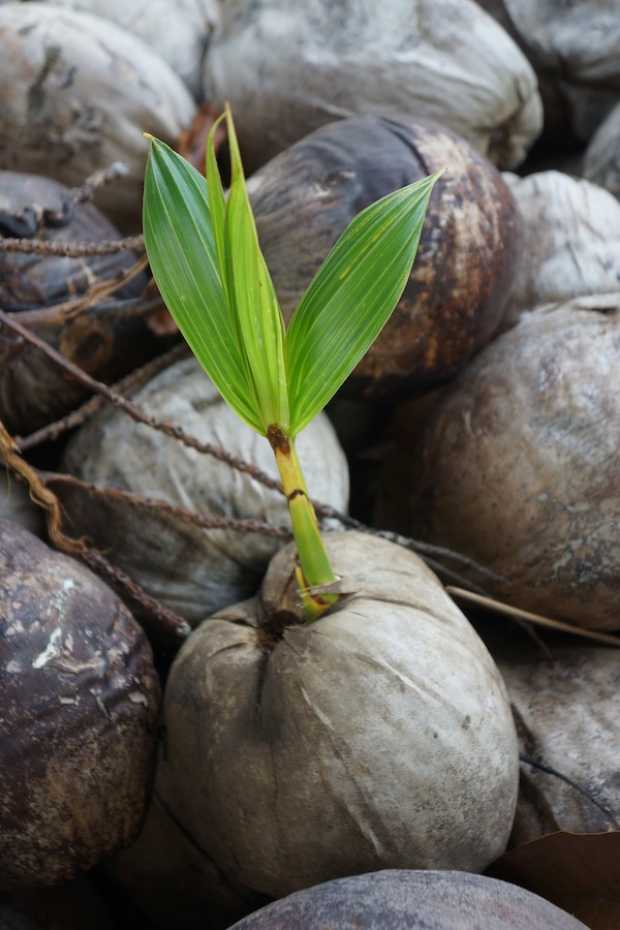Not a member yet? Sign Up!
Info
Please use real email address to activate your registration

September 2nd is the World Coconut Day, commemorated to generate more awareness on the importance of coconut and to attract more investment for the welfare of coconut farmers.
The Tree of Life
 Coconut is known as the tree of life as most of its parts can be utilized for many purposes. The Coconut Market Information Center listed the commercial uses of coconut adapted from Plant Cultures. These commercial uses of coconut encompass coconut oil, either for virgin coconut oil, cooking oil or cosmetic products; coconut water as an antioxidant drink; food, as syrup, coconut milk, desiccated coconut; palm sap for palm sugar, vinegar and wine; crafts for rugs, brooms, and decoration; coir, the fiber from the outer husk of coconuts for fishnets and house frames; and leaves, stems and fruits for baskets, hats, building materials, and household utensils.
Coconut is known as the tree of life as most of its parts can be utilized for many purposes. The Coconut Market Information Center listed the commercial uses of coconut adapted from Plant Cultures. These commercial uses of coconut encompass coconut oil, either for virgin coconut oil, cooking oil or cosmetic products; coconut water as an antioxidant drink; food, as syrup, coconut milk, desiccated coconut; palm sap for palm sugar, vinegar and wine; crafts for rugs, brooms, and decoration; coir, the fiber from the outer husk of coconuts for fishnets and house frames; and leaves, stems and fruits for baskets, hats, building materials, and household utensils.

Botanically speaking, coconut falls in the Palmae family with Cocos nucifera as its Latin name. Based on how long it takes to produce the fruits, coconut can be categorized into the tall variety and the dwarf variety. Hybrid coconuts combined the good qualities of both varieties
The tall variety that starts producing its fruits at 6-8 years after planting can grow for 100 years, more resistant to diseases and produces around 90 meaty fruit with high oil content per year. The dwarf variety has more fruits but is very sensitive to climate fluctuations.
Copra production
Research on coconut varieties suitable to be released for Indonesia’s conditions has been carried out by Balitka, The Indonesian Coconuts and Palmae Research Institute . According to Balitka, since 30 years ago, the average productivity of coconut at the farm level in Indonesia is still 1.1 tons of copra / hectares / year. Copra is the dried white flesh of the coconut from which coconut oil is extracted
The low level of crop productivity is mainly due to the limited high quality seedlings available for farmers. In some locations, disturbing pests worsens the low productivity. Ongoing research has been conducted to remedy the situation and Balitka has released 24 varieties, consisting of 15 tall varieties, 4 dwarf varieties and 5 hybrid varieties. The new tall variety can reach between 2.8 – 4 tons of copra/hectares per year compared to 1.1 tons for the traditional variety.
Coconut Producing Countries
More than 90% of world coconut production and exports of coconut products come from 18 countries of the Asian and Pacific Coconut Community, namely Federated States of Micronesia, Fiji, India, Indonesia, Kiribati, Malaysia, Marshall Islands, Papua New Guinea, Philippines, Samoa, Solomon Islands, Sri Lanka, Thailand, Tonga, Vanuatu, Vietnam, Jamaica and Kenya.
Based on FAO latest data, the Top 5 of Anything listed Indonesia, Philippines, India, Brazil and Sri Lanka as the Top 5 Coconut Producing Countries.
A number of coconut farmers, owners and workers alike, have for generations sent their children to school and colleges paid by income earned from coconut trees.
Rendang, the most delicious food
 Food from coconut products is gaining more popularity in the world. Last year, the most delicious food in the world voted by CNN was Rendang. It is a beef dish, cooked with coconut milk and a mixture of lemongrass, galangal, garlic, turmeric, ginger and chilies.
Food from coconut products is gaining more popularity in the world. Last year, the most delicious food in the world voted by CNN was Rendang. It is a beef dish, cooked with coconut milk and a mixture of lemongrass, galangal, garlic, turmeric, ginger and chilies.
Nutiva, a California based company provider of organic coconut oil, hemp foods, and chia seeds has been named one of the fastest-growing private companies in America by Inc. Magazine. Nutva Coconut Oil is always certified organic and non-GMO. In its line of products, Nutiva has Coconut Manna, Organic Coconut Sugar, Coconut Chips, Coconut Fine-Shred Macaroon, and Coconut Flour.
At the International Food Blogger Conference held recently in Portland, Oregon, John Roulac its founder and CEO explained how Nutiva donates 1 percent of its sales to groups promoting sustainable agriculture, as well as supporting the health and well-being of the communities in which it operates.
In the Philippines, Nutiva is giving away thirty-five thousand coconut seedlings to independent farmers. Each tree will, in five years, yield up to forty-eight coconuts a year and produce a few dozen jars of Nutiva Organic Coconut Oil.
Such initiative will hopefully interest other companies that use coconuts as their raw materials to contribute some of their earnings for the welfare of independent farmers. Fluctuating world coconut price makes it more important to generate more awareness on the importance of coconut and to attract more investment beyond World Coconut Day.
--------------------
Photos courtesy of Maira Niode and Dian Anggraini.